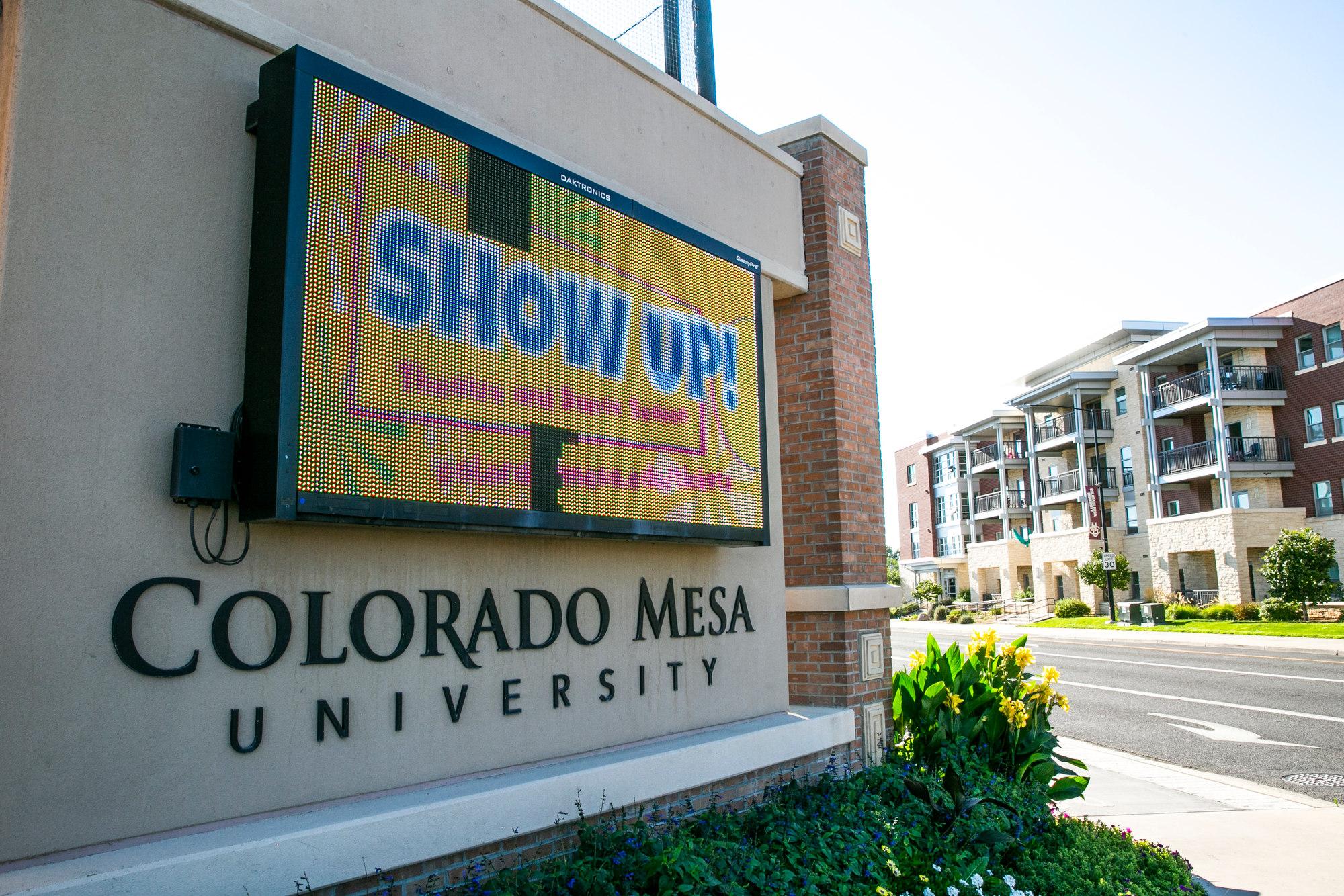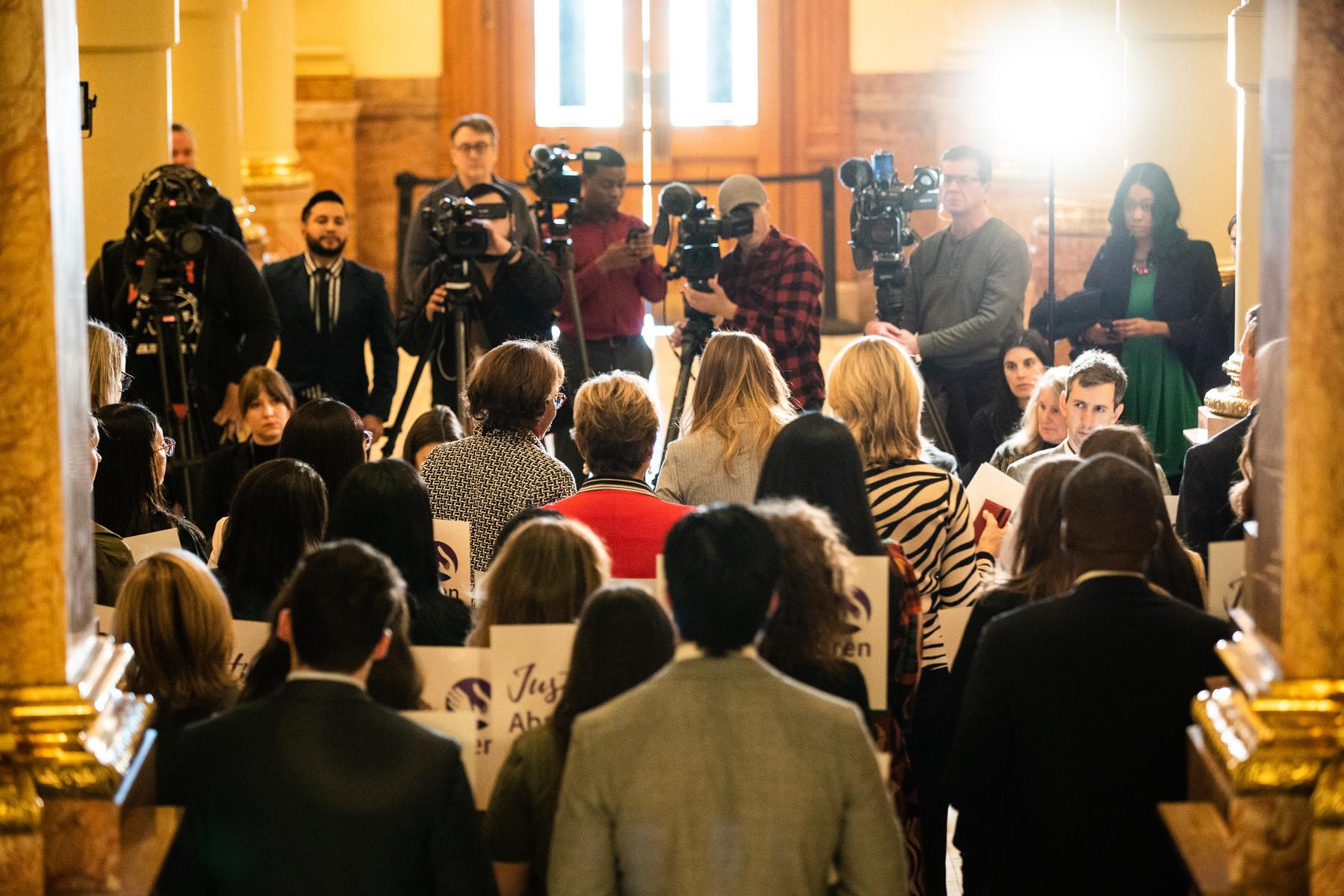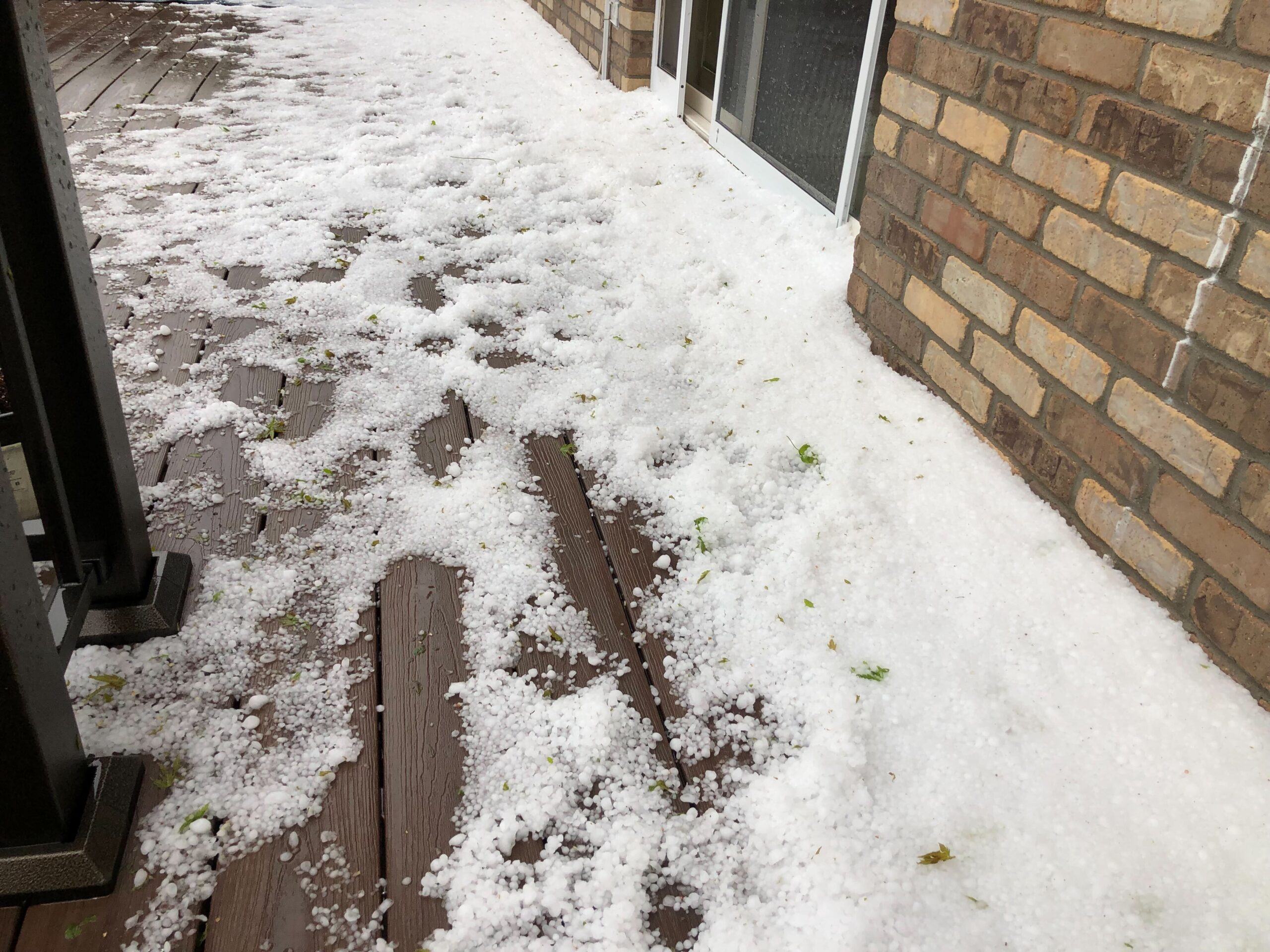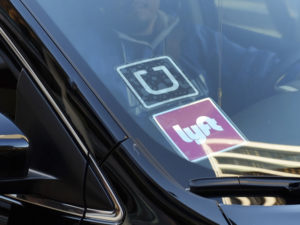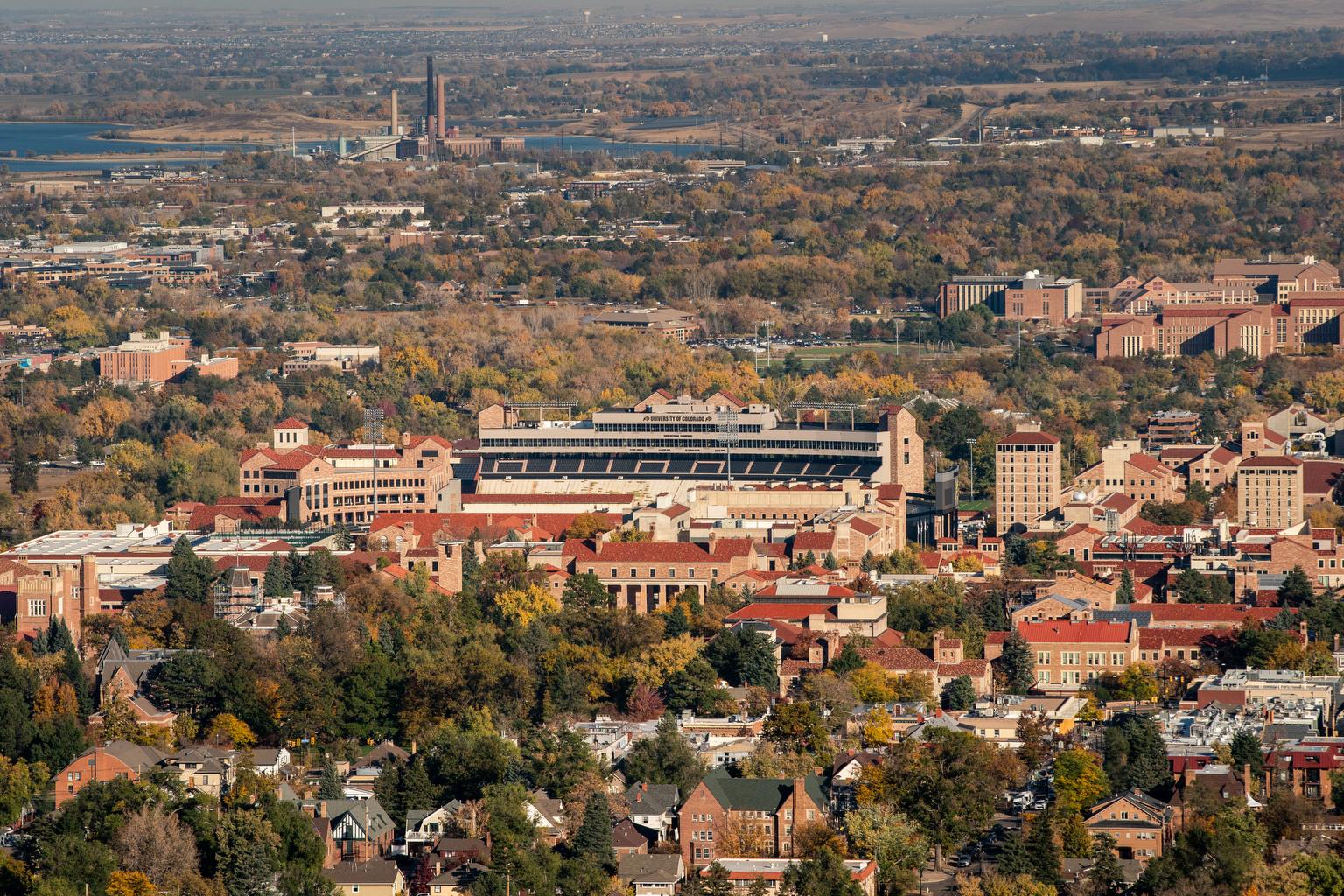
Updated Jan. 14, 2025 at 3:37 p.m.
Two CU Boulder students are suing the University of Colorado alleging their free speech and due process rights were violated after a pro-Palestinian protest.
The lawsuit names the university system, CU Boulder chancellor Justin Schwartz and two other CU officials.
The two students, Max Inman and Mari Rosenfeld, members of a student group Students for Justice in Palestine, claimed CU Boulder officials retaliated against them for participating in a peaceful protest on Oct. 3, 2024.
The protest took place outside and inside a university job fair hosting military contractors. A student protester used a bullhorn to make one statement: "There are corporations profiting from the genocide in Gaz are here today."
The student protesters said they complied when told to leave the job fair, which continued.
The lawsuit alleges CU immediately ordered an “interim campus exclusion” against two of the students. The students were barred from campus except to attend classes, which the lawsuit argues, prevented them from engaging in further First Amendment-protected activity on campus for nearly two months. It said CU took the action without a hearing or opportunity to appeal.
The lawsuit brings five free speech and due process claims including alleging the ban from participating in campus protests for nearly two months violated free speech and the failure to provide students with a hearing or opportunity to appeal violated students’ 14th Amendment right to due process. It also claims the university violated a Colorado statute that protects expressive speech on university campuses.
The University of Colorado Boulder said in a statement that it has not yet been served the lawsuit.
“Once it has been served, the campus must review it and determine the appropriate course of action. As such, we are unable to comment further at this time.”
Attorney Dan Williams with the firm Hutchinson Black and Cook LLC said the university’s discipline of the two students follows a pattern of similar retaliation against pro-Palestinian protesters across the country.
“We've seen universities around the country cracking down to stop students from protesting in support of the people of Gaza,” he said. “I really think what the University of Colorado did here takes the cake.”
He said the university’s policy prohibits “material disruptions” of university events.
“There was no material disruption here because when these students were asked to leave, they left.”
Williams said there are genuinely dangerous situations on campus where administrators do need the right to exclude someone from campus but the entire incident lasted less than five minutes and students left the building within one minute.
He said the university should have allowed the students to appeal the decision.
“This was not a case that posed any danger to the university community, and the university just overreacted as a way to silence these students.”
Peaceful, anti-war protests have had a long history on American college campuses.
The issue of using American tax dollars to aid in the indiscriminate killing of Palestinian civilians has become a deeply moral issue for many college students.
More than 46,000 Palestinians have been killed and 109,378 wounded, according to Gaza’s Health Ministry. An analysis by the United Nations Human Rights Office said close to 70 percent of verified victims over a six-month period were women and children.
The United States has been the main supplier of military aid to Israel since its inception. The U.S. spent nearly $18 billion on military aid to Israel from Oct. 2023 to Oct. 2024, according to an estimate by Brown University. It has sent tens of thousands of artillery shells to Israel for its ground operation in Gaza, along with bombs, small arms and other lethal aid.
“The United States is arming and abetting genocide of Palestinians by Israel, and we as Americans, both here in Colorado as well as on other college campuses and communities across the nation, cannot be threatened into silence while our country flouts international law and kills people en masse,” said student Inman.
Student Rosenfeld said as a Jewish student her voice deserves to be heard at an institution that “claims to value a diversity of perspectives.”
The lawsuit also alleges that Students for Justice in Palestine was subject to intense monitoring by university police that other groups have not such as groups in support of Israel.
“We really want the university to change its practices to treat all student groups equally and to certainly not use a pretextual reason to get student activists off campus,” said Williams.
The plaintiffs want an injunction to prevent what they allege is the university’s silencing of student speech from recurring, as well as damages.
Editor's note: This story was updated to reflect that Palestinian territories are not part of a fully independent, unified state.

